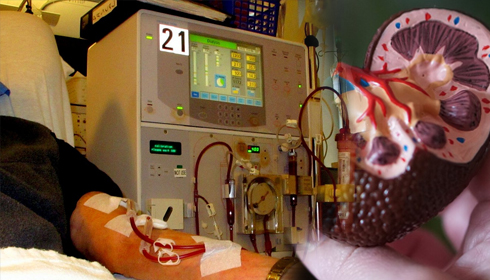
End-stage kidney disease in young adults is stretching limited resources: Dr Pokhriyal
According to doctors, there has been a concerning increase in the number of cases of end-stage renal disease (ESRD) among persons in India between the ages of 25 and 55. This demographic shift is overwhelming the country's healthcare resources, underscoring the urgent need for increased public education, earlier intervention, and organ donation.
Dr. Saurabh Pokhariyal, co-founder of Vitus Care, emphasised the seriousness of kidney diseases and their impact, linking them to higher morbidity and mortality rates in the country. As symptoms worsen over time, they can lead to less frequent urination, extreme tiredness, nausea, vomiting, loss of appetite, oedema in the feet and ankles, hypertension, and even death.
This trend has multiple identified causes. An increasing number of people are suffering from lifestyle-related diseases, including diabetes, obesity, and high blood pressure. These disorders, more prevalent in younger persons and commonly linked to diets rich in harmful fats, salts, and carbohydrates, increase the risk of end-stage renal disease (ESRD). Type II diabetes and hypertension, as Dr. Pokhariyal highlighted, are the top causes of kidney failure worldwide and are associated with sedentary lifestyles. These conditions are increasingly impacting younger generations.
Environmental factors also play a significant role. There is evidence that pesticides in food and heavy metals in water can harm the kidneys. Misuse of over-the-counter drugs, especially antibiotics and analgesics, increases the risk of renal failure. Autosomal dominant polycystic kidney disease (ADPKD) and other genetic abnormalities further complicate the already convoluted causes of kidney disease in India.
Demand for dialysis and kidney transplants is directly proportional to the increase in end-stage renal disease (ESRD) rates. Vitus Care is calling for an end to this rising health epidemic by promoting preventative actions, including healthier eating and lifestyle changes. According to Dr. Pokhariyal, you can reduce your risk of having kidney disease by following a balanced diet, being physically active on a regular basis, and controlling diabetes and hypertension.
To tackle the epidemic of lifestyle disorders that predispose people to end-stage renal disease (ESRD), the medical profession is asking for a public education campaign. Experts say that there is an urgent need to maintain a healthy lifestyle with a balanced diet and frequent medical check-ups to identify and control dangers at an early stage can go a long way in containing the disease.